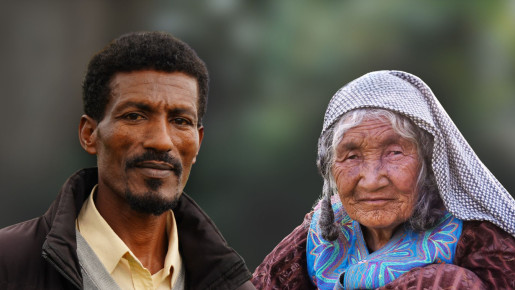Improving the diets of women and children in DRC through cooking demonstrations and local foods
Published: Jul 26, 2023 Reading time: 3 minutes Share: Share an articleIn rural villages of Democratic Republic of Congo, mothers and fathers are supported to improve the nutritional status of their children. One of the key activities are participatory cooking demonstrations where caregivers are introduced to highly nutritious porridge, using local ingredients, ranging from flour, powdered fish, oil to vegetables.
Dozens of mothers with small children came to the Bwegera health centre in Lemera, where they were joined by fathers and even elders for our culinary demonstration. The team regularly teaches people how to prepare nutritious porridge from locally available ingredients. Step by step, they explain and demonstrate how to cook it. It contains flour from maize and cassava, dry fish powder, sugar, salt, oil and water from cooked amaranth leaves. The porridge is served with a piece of fruit like orange or tomato. We call it "four-star porridge" because it contains all the nutrients needed for the child's growth - vegetables, meat, fruit, and cereals.
The huge pot of porridge is ready to eat in less than an hour. People can't wait to taste it. When the lunch starts, it's evident that the food is delicious. Children like it very much.
"This training helps us in our village to fight malnutrition. This session helps us to know what foods pregnant and breastfeeding women should eat. If we put this training into practice, our children will be healthy and pregnant women will give birth easily and have healthy babies," says Mwamini Tulinabo, a 27-year-old mother of three who also participated in a cooking demonstration in Bwegera.
The province of South Kivu is particularly affected by malnutrition, with approximately 48 % of children suffering from this preventable ailment. Several factors contribute to this issue, including extreme poverty and frequent population displacements due to conflict.
Thanks to financial support from the Bureau of Humanitarian Assistance (BHA), we have been able to actively work to combat malnutrition in the Nyangezi and Lemera health zones.
Through our multisectoral project focused on nutrition, cash, and WASH, we aim to reduce the impact of armed conflict on vulnerable population members and ensure that they have access to necessary humanitarian assistance.



